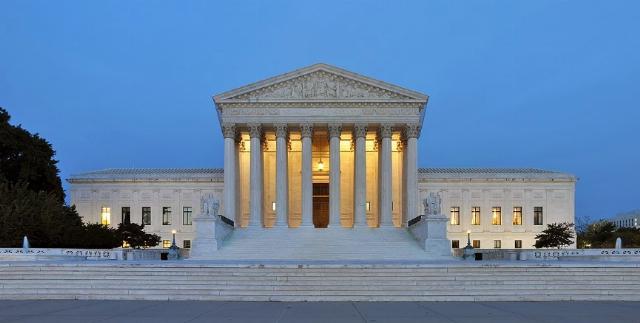


In all the debates and court decisions about President Trump’s executive order limiting birthright citizenship to children born to U.S. citizens or lawful permanent residents, one central fact has been overlooked. This fact, once grasped, should guide everything Congress does, everything the president does, and everything the Supreme Court does about birthright citizenship.
That fact is that the Supreme Court already decided the meaning of the Citizenship Clause of the Fourteenth Amendment, and it did so by announcing a rule that the president’s executive order substantially—but not entirely—complies with.
The Citizenship Clause provides that “[a]ll persons born or naturalized in the United States, and subject to the jurisdiction thereof, are citizens of the United States.”
The Supreme Court definitively interpreted the Citizenship Clause in United States v. Wong Kim Ark, decided in 1898. At issue was the citizenship status of a man born in the United States to noncitizen Chinese parents. Though this decision has always been challenging to read, the Court was clear enough when it held:
Chinese persons, born out of the United States, remaining subjects of the Emperor of China, and not having become citizens of the United States, are entitled to the protection of and owe allegiance to the United States, so long as they are permitted by the United States to reside here [emphasis added]; and are ‘subject to the jurisdiction thereof,’ in the same sense as all other aliens residing in the United States.
Here, the Court held that persons such as Wong Kim Ark’s parents—and thus children born to them in the United States—were within the allegiance and protection of the United States, and subject to its jurisdiction under the Citizenship Clause, “so long as they are permitted by the United States to reside here”—meaning, provided that they were lawfully present and permitted to continue residing here.
The matter of lawful presence came up because, at the time, other Chinese persons—laborers who had overstayed their permission to be in the country—were subject to deportation under the Exclusion Acts, and thus, for the Court, were neither within the allegiance and protection of the United States nor “subject to the jurisdiction thereof.”
In light of this still-binding precedent, what should Congress, the president, and the courts do? Congress should follow Wong Kim Ark, and provide that, going forward, only those born in the United States to parents with lawful permission to reside here will be citizens.
Whether Congress acts or not, the president should pull and replace his current birthright citizenship executive order—an act that would immediately reset the cases now going against it.
His current order appears somewhat too restrictive under Supreme Court precedent, since it excludes from birthright citizenship children of some temporary workers and students who have lawful permission to reside here for years. The arguments the government makes for the current order, moreover, have been uniformly rejected by the courts that so far have ruled on challenges to it.
The replacement order, like Congress’s hypothetical new law, should restrict birthright citizenship to those whose parents have lawful permission to reside in the United States. Going forward, this revised order would exclude from birthright citizenship children of illegal aliens, foreign tourists, and aliens, if any, who have unrevoked grants of unlawful mass parole.
The courts have the easiest task of all. They have only to apply Wong Kim Ark, and therefore either uphold a revised executive order entirely or uphold the vast majority of the first order’s applications.
This task will be just as easy for the Supreme Court as for lower courts. The Court will have no basis, sufficient to overcome stare decisis, to overturn the case that decided this issue 127 years ago and still controls.
Christopher J. Hajec is Deputy General Counsel of the Federation for American Immigration Reform, America’s largest and oldest public interest organization dedicated to immigration reform aligned with the Nation’s interest.

Image: Joe Ravi, CC BY-SA 3.0, via Wikimedia Commons, unaltered.
